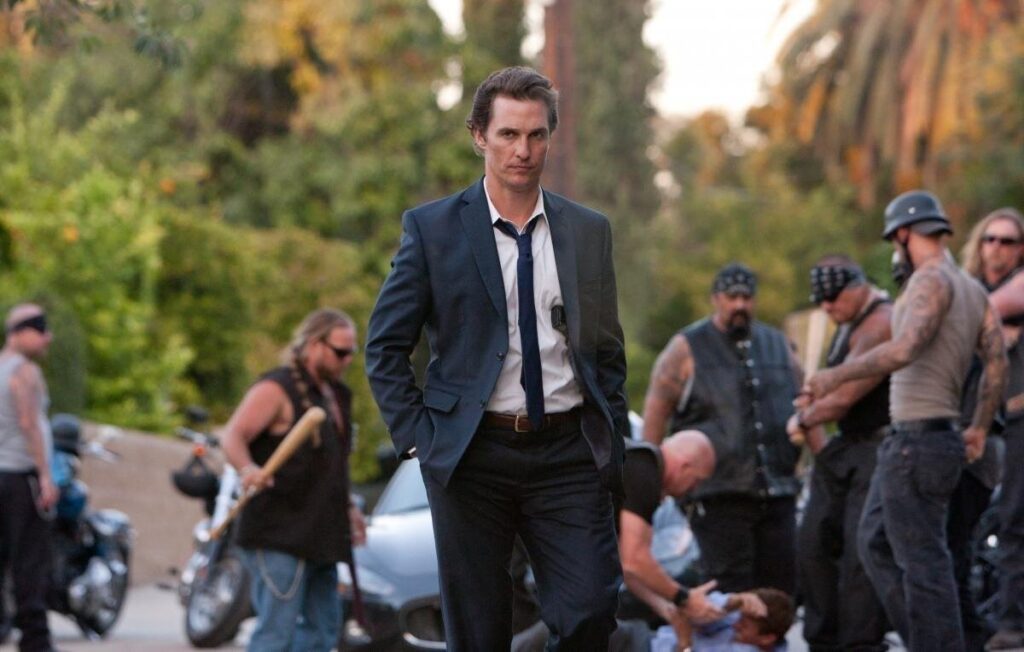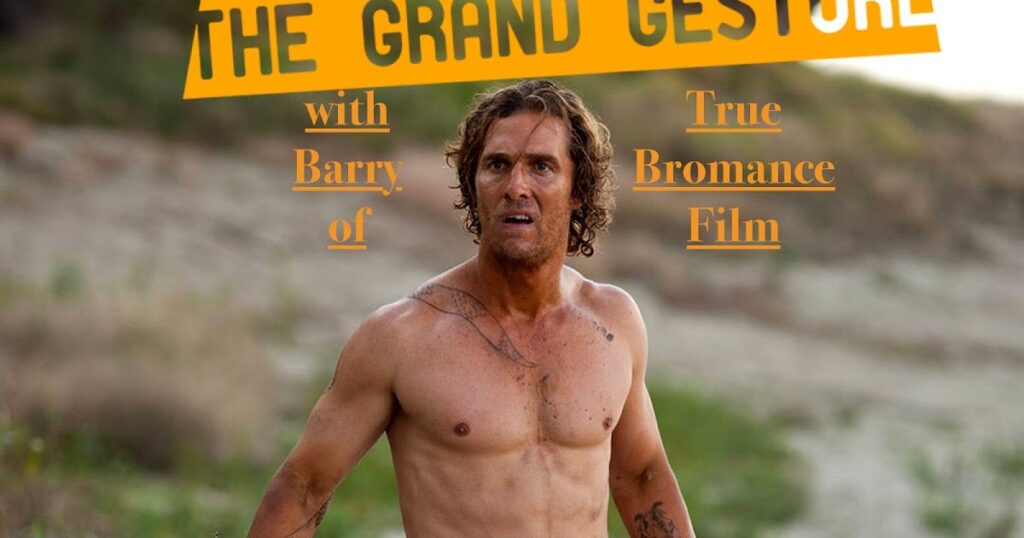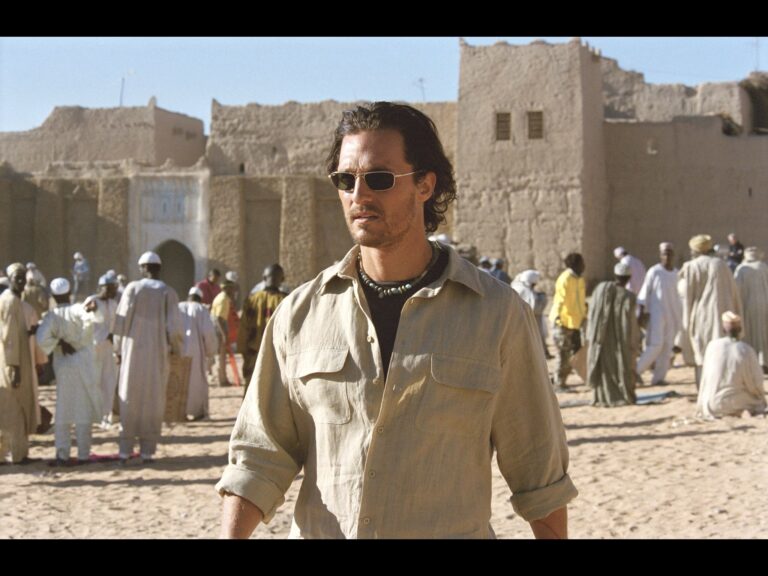When discussing iconic films in the Western genre, Tombstone (1993) frequently emerges as a classic that captures the essence of the Old West. Directed by George P. Cosmatos and featuring a star-studded cast, including Kurt Russell, Val Kilmer, and Sam Elliott, the film depicts the legendary Gunfight at the O.K. Corral and the tumultuous lives of historical figures like Wyatt Earp and Doc Holliday. However, it’s worth noting that Matthew McConaughey does not appear in Tombstone. Despite this, McConaughey’s career trajectory, acting style, and involvement in films that echo the themes of the Western genre provide a fascinating lens through which to examine this beloved classic.

The Legacy of Tombstone
Tombstone is more than just a film; it’s a cultural touchstone that resonates with audiences for its compelling narrative and rich characterizations. The film portrays Wyatt Earp (Kurt Russell) as he seeks to establish law and order in the chaotic town of Tombstone, Arizona. Accompanied by his brothers and the legendary gambler and gunfighter Doc Holliday (Val Kilmer), Earp confronts the Clanton gang, leading to one of the most famous shootouts in American history.
Val Kilmer’s portrayal of Doc Holliday has garnered significant acclaim, with many citing it as one of his best performances. The film’s dialogue, cinematography, and intense Matthew McConaughey action sequences have solidified Tombstone as a hallmark of the Western genre, earning it a dedicated fan base and influencing future films.
Despite McConaughey’s absence from Tombstone, his filmography includes works that resonate with similar themes, emphasizing moral complexity and the pursuit of justice, which are central to many Western narratives.

McConaughey’s Career and Connection to the Western Genre
One of his notable roles related to the themes of the Western genre is in Killer Joe (2011), a neo-noir crime thriller. While it’s not a traditional Western, the film incorporates elements of moral ambiguity and desperation reminiscent of classic Western narratives. McConaughey’s portrayal of Joe Cooper, a hitman hired by a dysfunctional family, showcases his ability to embody complex and morally questionable characters.
In 2016, McConaughey starred in The Free State of Jones, a historical drama set during the Civil War. The film tells the story of Newton Knight, a Confederate soldier Matthew McConaughey who leads a rebellion against the Confederacy and its treatment of poor farmers and slaves. While it departs from the classic Western setting, the themes of justice, rebellion, and moral conflict align with the spirit of the genre.

The Evolution of Westerns
The Western genre has undergone significant changes over the decades, evolving from the classic formula of good versus evil to embrace more complex narratives. Early Westerns, characterized by clear moral lines and archetypal heroes, have given way to stories that explore the human condition, questioning the morality of characters and their choices.
Films like Tombstone helped bridge this gap, presenting multifaceted characters who grapple with their decisions in the face of lawlessness and societal pressures. The success of Tombstone and other films in the 1990s paved the way for a new wave of Westerns that challenged traditional narratives, focusing on character development and moral dilemmas.
McConaughey’s filmography reflects this evolution. His characters often wrestle with ethical questions and personal demons, mirroring the struggles faced by traditional Western heroes. This thematic depth connects McConaughey to the essence of Tombstone, even in the absence of a direct role in the film.
The Impact of Tombstone on Pop Culture
Tombstone has left an indelible mark on popular culture, influencing not only other Westerns but also television, literature, and even video games. The film’s memorable quotes, such as Doc Holliday’s iconic line, “I’m your huckleberry,” have become ingrained in the lexicon of film history.
The film’s portrayal of the Gunfight at the O.K. Corral has inspired countless parodies, references, and homages across various media. The characters and their legendary status have become staples in the American cultural consciousness, symbolizing the romanticized vision of the Old West.
Moreover, the film’s success has sparked interest in historical research surrounding the events depicted. Tombstone, Arizona, has embraced its cinematic legacy, attracting tourists eager to explore the town’s rich history and the actual sites of the famous gunfight.
McConaughey’s Future in Westerns
As the Western genre continues to experience a revival, with films like Hell or High Water (2016) and The Harder They Fall (2021) pushing the boundaries of storytelling, there is speculation about Matthew McConaughey potential involvement in future Western projects. His charisma, depth, and ability to portray morally complex characters make him a prime candidate for a modern Western.
The resurgence of the genre provides opportunities for McConaughey to showcase his talent in roles that challenge traditional Western tropes. With filmmakers increasingly willing to explore diverse narratives and character dynamics, McConaughey’s inclusion in future Westerns could bring a fresh perspective to the genre.

Conclusion: The Timeless Appeal of the Western Genre
While Matthew McConaughey may not be part of the Tombstone cast, his career reflects the themes and complexities that define the Western genre. The film’s enduring popularity and cultural significance underscore the fascination with the Old West, its legends, and its moral ambiguities.
As the genre continues to evolve, blending classic elements with contemporary storytelling, McConaughey’s potential involvement in future Westerns promises to bring new life to the narrative traditions that have captivated audiences for generations. Whether through the lens of Tombstone or future Western projects, the themes of justice, morality, and the human experience will undoubtedly continue to resonate, ensuring that the spirit of the Old West lives on in modern cinema.


